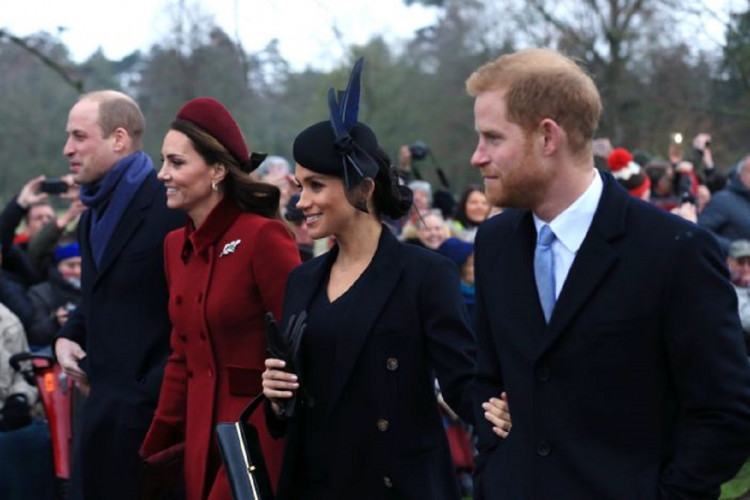Prince William and Kate Middleton reportedly pushed for a stronger response from Buckingham Palace to counter Meghan Markle's accusations of racism within the royal family. This was highlighted in a new biography, "Catherine, The Princess of Wales," by royal biographer Robert Hardman, who detailed the intense deliberations that followed Markle's bombshell interview with Oprah Winfrey in 2021.
In the interview, Meghan Markle recounted a distressing episode during her pregnancy with Archie, where an unnamed royal speculated about the potential darkness of her child's skin. "In those months when I was pregnant, all around this same time...we have in tandem the conversation of 'He won't be given security, he's not going to be given a title' and also concerns and conversations about how dark his skin might be when he's born," Meghan told Winfrey. The interview cast a harsh light on the royal family, prompting a swift response from the palace.
Hardman revealed that the initial draft of the palace's response was considerably milder. However, both Prince William and Kate Middleton felt a more robust rebuttal was necessary. "The original draft of the statement had been much milder, but both William and Catherine had been keen to toughen it up," Hardman noted. It was Kate who suggested the now-famous phrase, "recollections may vary."
William also publicly challenged the allegations, asserting, "We are very much not a racist family." This statement was part of a broader effort by the palace to address and mitigate the damage caused by the accusations. The official statement from Buckingham Palace read: "The issues raised, particularly that of race, are concerning. While some recollections may vary, they are taken very seriously and will be addressed by the family privately."
In the wake of the fallout, Prince Harry sought to clarify the couple's stance, emphasizing that they never accused the royal family of being racist. During a promotional tour for his memoir, "Spare," Harry differentiated between racism and unconscious bias. "Going back to the difference between what my understanding is because of my own experience, the difference between racism and unconscious bias, the two things are different," he said on ITV. He argued that recognizing and addressing unconscious bias is crucial to becoming part of the solution rather than the problem.
Harry's comments, however, sparked criticism from some academics who felt that his distinction between racism and unconscious bias downplayed the severity of the issue. Meghan Tinsley, Presidential Fellow in Ethnicity and Inequalities at The University of Manchester, wrote, "Unconscious bias is useful as a tool for helping people who think racism is irrelevant to them - that is, people who hold power in a racist society - to understand that their biases are the product of institutional racism. But suggesting that unconscious bias is somehow less harmful than racism posits the latter as something only to be overcome at the individual level."
In the Netflix documentary "Harry & Meghan," Markle reflected on how her race became a focal point of public discussion after moving to the UK. "At that time, I wasn't thinking about how race played a part in any of this," she shared. "I genuinely didn't think about it. It's very different to be a minority but not be treated as a minority right off the bat."
Markle recounted how the British media and public scrutiny intensified her awareness of her race, saying, "I'd say now, people are very aware of my race because they made it such an issue when I went to the U.K. But before that, most people didn't treat me like a 'Black woman.' So that talk didn't happen for me."





